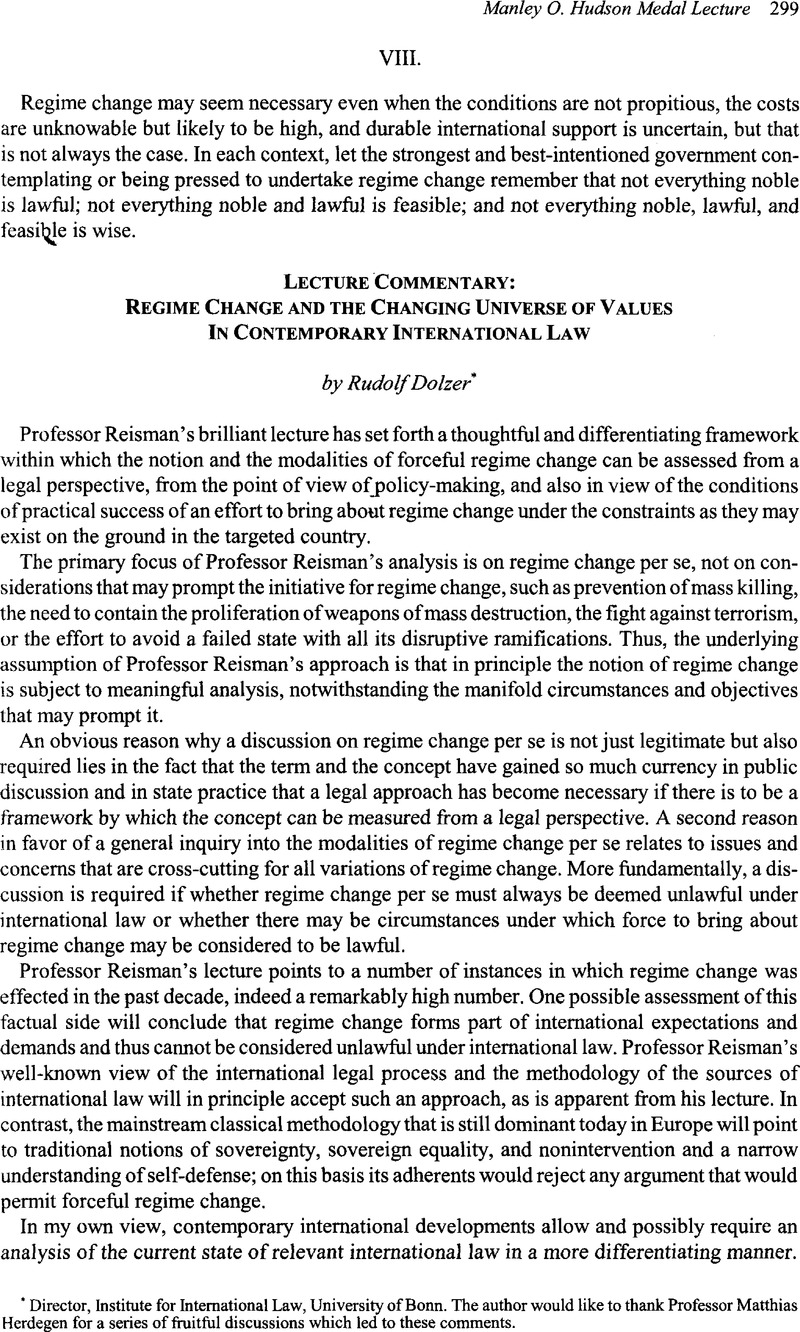No CrossRef data available.
Article contents
Lecture Commentary: Regime Change and the Changing Universe of Values in Contemporary International Law
Published online by Cambridge University Press: 28 February 2017
Abstract

- Type
- Manley O. Hudson Medal Lecture
- Information
- Copyright
- Copyright © American Society of International Law 2004
References
1 Recognition of good governance is not only a demand of donors in their concepts of providing aid; the UN and African leaders have expressed the same position. See UN GAOR, 55th Session, UN Doc. A/RES/55/2 (Sept. 18,2000), Statement at the 35th Ordinary Session of the OAU Assembly of Heads of State and Government, Algiers, Algeria (July 13, 1999); Declarations, Assembly of the African Union, Second Ordinary Session, Maputo, Mozambique, Decision on the Report of the Interim Chairperson on the Conference on Elections, Democracy and Good Governance, Doc. EX/CL/35 (III (Dec. 18, 2003): “The Assembly: ( . . . ) Underscores the importance and role of democracy and good governance in economic and social development and reaffirms the commitments of the Union in this respect.”
2 Of course, we may study the experience of introducing democracy in Germany and in Japan after 1945. but here we must take into account that, after their total military defeat, no powerful interests within these two countries were strong enough to pose any danger to the regime changer. Nor was there any sympathy whatsoever left for the ousted regimes in the region or in the world, while there was a positive desire on the part on the population in the country to build a new regime. None of the more recent efforts to change a regime took place under such circumstances, and none were prepared by the international community as well as were the changes in Germany and Japan in 1945.
3 See James M. Boughton and Alex Mourmouras, Is Policy Ownership an Operational Concept? (IMF Working Paper WP/02/72, 2002).
4 In a strictly military-operational sense, the experience of U.S. commanders of the need to coordinate on a daily basis with third states was mixed even during NATO operations in Kosovo.




